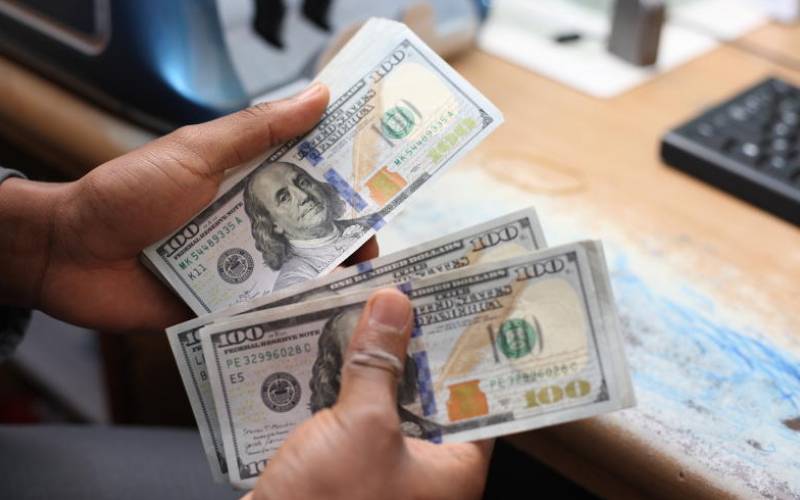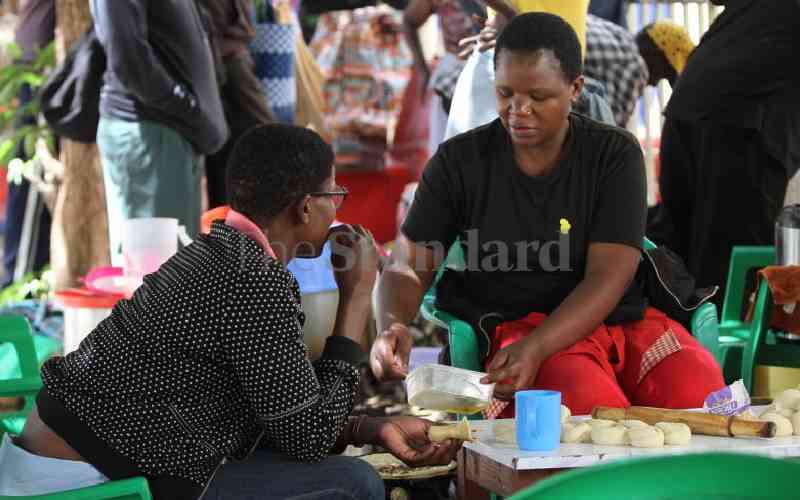
Super-rich Kenyans had put Sh771 billion in dollar accounts by the end of August 2021 in an effort to protect their money as the shilling took a beating.
The latest data from the Central Bank of Kenya (CBK) shows that the cash in foreign currency deposits jumped by Sh13 billion from Sh758 billion in July 2021, as the local currency continued its free-fall.
With gross deposits in local banks at Sh4.4 trillion, this means that 17.5 per cent of the cash stashed in Kenya’s commercial banks is in foreign currencies, especially dollars.
This is the highest level of foreign currency deposits since February 2021, when the amount held in dollar accounts touched a high of Sh780 billion.
ICEA Lion Asset Management Chief Executive Einstein Kihanda reckoned that this might just be a hedging mechanism against currency depreciation.
He noted that, globally, the US dollar has also been gaining significant ground against other currencies.
“My initial thinking would be that at least you want to hedge so that if, for instance, you need to make a payment, you have the necessary currency to effect it without having to be affected by fluctuations,” said Kihanda.
Paul Njoki, Standard Chartered's head of wealth management, however, does not think the pile-up of dollars is about a flight to safety - which has been witnessed in countries like Nigeria and Uganda.
“Kenyans love their currency,” said Njoki, noting that most of the stockpiles of dollars are due to interruptions in investment plans and restrictions on travel outside the country.
“I think during the Covid-19 period, there are some investments that got delayed,” he said, noting that more people have been deferring new investments due to uncertainty, particularly at the height of the pandemic.
He also reckoned that the rich, who would have been building up a stock of dollars in preparation for travel outside the country, might have been left with a lot of the currency in their accounts after bans on international arrivals were put in place to curb the spread of Covid-19.
“If the travel was delayed then obviously that money stayed in the account.”
Foreign currency deposits are likely to rise further, following the weakening of the shilling that yesterday was trading at an average of 111.91 units against the greenback, data from the Central Bank shows.
Critics have also noted that there is a parallel forex market where the interbank rate - the rate at which banks buy from each other - is much higher than the one being reflected on banks’ websites.
Financial markets
Since the outbreak of Covid-19, which devastated financial markets in frontier countries such as Kenya, investors, particularly wealthy ones, have converted their cash into dollars as a hedge against exchange rate volatility.
On March 12, a day before the country recorded its first case of the viral disease, the local currency was trading at 102.47 units against the dollar.
However, since then the shilling has been in a free-fall due to a combination of factors, including poor export and tourism earnings.
To shield themselves against exchange rate volatility, banks have also been taking up a lot of long-term dollar-denominated loans from development partners.
Equity Bank recently said it had not only diversified geographically in six countries, but had also managed a currency mix, with only 56.6 per cent of its cash is held in shillings.
[email protected]
 The Standard Group Plc is a multi-media organization with investments in media
platforms spanning newspaper print operations, television, radio broadcasting,
digital and online services. The Standard Group is recognized as a leading
multi-media house in Kenya with a key influence in matters of national and
international interest.
The Standard Group Plc is a multi-media organization with investments in media
platforms spanning newspaper print operations, television, radio broadcasting,
digital and online services. The Standard Group is recognized as a leading
multi-media house in Kenya with a key influence in matters of national and
international interest.
 The Standard Group Plc is a multi-media organization with investments in media
platforms spanning newspaper print operations, television, radio broadcasting,
digital and online services. The Standard Group is recognized as a leading
multi-media house in Kenya with a key influence in matters of national and
international interest.
The Standard Group Plc is a multi-media organization with investments in media
platforms spanning newspaper print operations, television, radio broadcasting,
digital and online services. The Standard Group is recognized as a leading
multi-media house in Kenya with a key influence in matters of national and
international interest.










